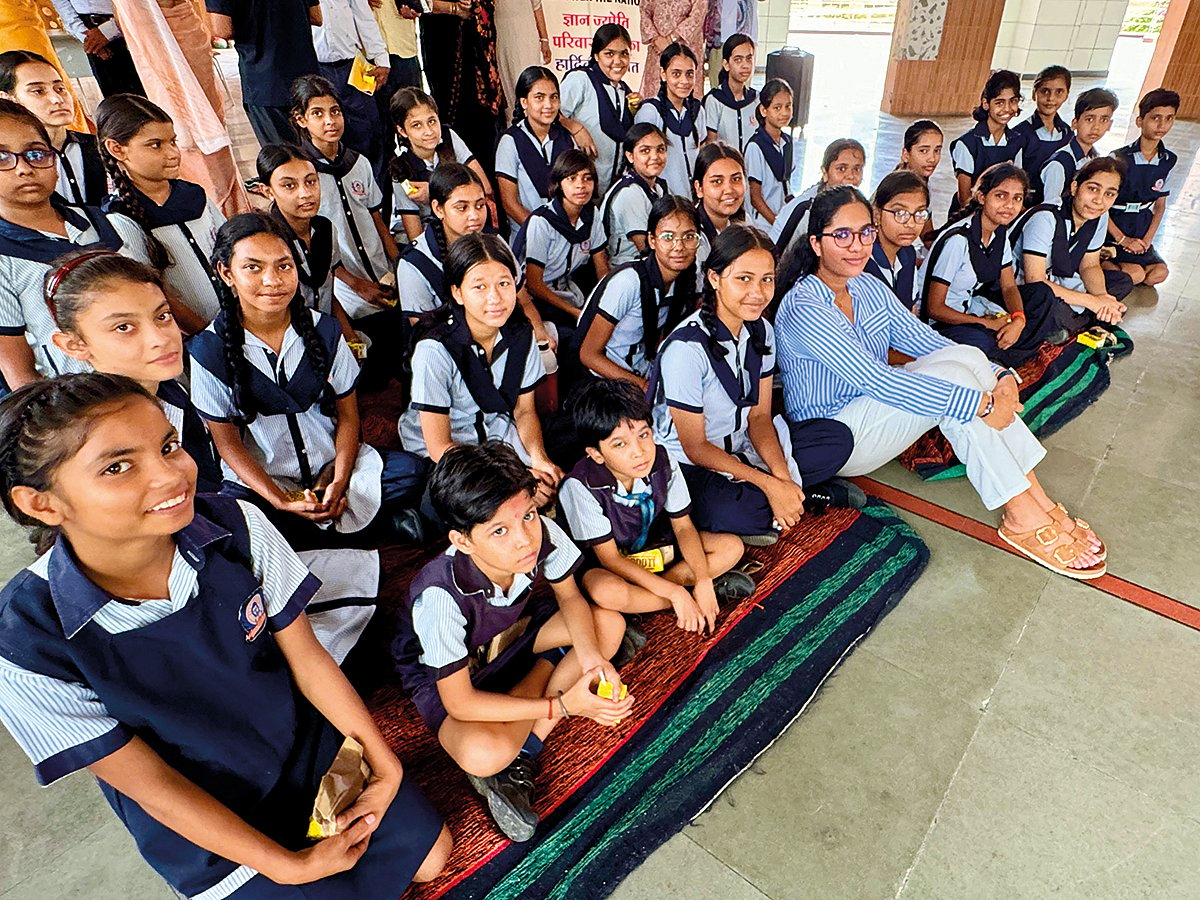Young author Avni Dixit bridges worlds with debut book on privilege and resilience
Dubai-born teen Avni Dixit spotlights the strength of underprivileged girls in India

At 17, most students are focused on exams and university applications. Avni Dixit is thinking about something bigger, how stories can make people care. Her debut book, Ask Me Why I Wrote This Book, is both a reflection and a call to action. It’s a young writer’s attempt to build a bridge between two worlds: the privilege she grew up with in Dubai, and the resilience she witnessed among underprivileged girls in India.
Born and raised in Dubai, Avni studies in Year 13 at Dubai International Academy, Emirates Hills. Her journey as a writer began after reading Malala Yousafzai’s autobiography. “I’m not Malala, my childhood couldn’t have been more different from hers,” she says. “But reading her story showed me how powerful a narrative can be. If her story could inspire me, sitting miles away in Dubai, then maybe mine could inspire others to act.”
That thought followed her through multiple summers spent volunteering with Gyanjyoti, an NGO in North India that supports the education of girls from low-income families. Listening to their stories changed how she saw the world, and herself. “Some of the girls studied after midnight because that’s when chores ended,” she recalls. “One girl, Nisha, would wake up at dawn to help her father set up his vegetable stall before school. I wanted people to see the beauty in their quiet strength.”
Strength and generosity
For Avni, stories are bridges. “They let us feel what someone else feels, even if their world looks nothing like ours,” she says. Her book aims not only to tell these girls’ stories, but to make readers look inward, to question privilege and how it shapes opportunity. “Understanding privilege can be uncomfortable,” she admits. “Writing this book made me realise how easy it is to take things for granted, a desk, a uniform, even the freedom to dream.”
Her time in India also taught her what true strength looks like. “I used to think strength meant doing something bold or extraordinary,” she says. “But it’s really in showing up every day, even when it’s hard.” She remembers Sunita, a girl who would wake before sunrise to cook, then travel to school on a rickety bus that often broke down. “She told me all this so casually, without complaint. That quiet determination redefined what hard work meant to me.”
Avni also learned a lesson about generosity from a 10-year-old girl named Kalpana. “She offered me a piece of roti from her almost-empty lunchbox,” Avni says. “She had so little, yet gave without hesitation. That moment changed how I see giving, it’s not about having more, it’s about being willing to share what you can.”
Empathy and purpose
Writing about others’ lives brought its own challenges. Avni was careful not to turn her subjects into charity cases. “I didn’t want the girls to feel like just another number,” she explains. “I spent time talking to them and their families about what they wanted shared and what they didn’t. Sometimes I left out things I thought were interesting because they didn’t want pity. Writing responsibly isn’t about getting every detail right, it’s about making sure people feel seen and respected.”
Growing up in Dubai made Avni more aware of what opportunity looks like, and how it’s distributed. “My life here is safe and comfortable. I have access to good schools and the freedom to explore what I love,” she says. “But in some Indian villages, classrooms are crowded, with no fans or air conditioning. Students share old textbooks and still show up eager to learn. That contrast shaped how I see privilege. It’s not bad to have it, it’s what you do with it that matters.”
Through Gyanjyoti, she has helped lead counselling sessions for parents, encouraging them to let their daughters stay in school instead of getting married early. Her activism, like her writing, comes from a belief that giving doesn’t require wealth, only intent.
When readers finish her book, Avni hopes they don’t feel pity. “I want them to ask: why should a girl’s dreams depend on where she’s born?” she says. “Real change doesn’t start with grand gestures. It starts with awareness and small, consistent actions, like mentoring, supporting a scholarship, or simply noticing the privileges we take for granted.”
She ends with a quote that guides her work: “I am only one, but I am one. I cannot do everything, but I can do something.”
For Avni Dixit, that “something” begins with listening, and telling stories that make others listen too.
Sign up for the Daily Briefing
Get the latest news and updates straight to your inbox
Network Links
GN StoreDownload our app
© Al Nisr Publishing LLC 2025. All rights reserved.